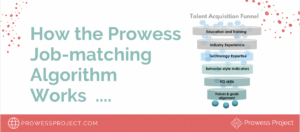The result of COVID-19’s impact on our daily lives has intensified the duality and struggle of being both a mother and having a career. Their tradeoffs for coping through the pandemic have disproportionately fallen on women to step-back, step-up and power-on.
While mothers are grateful for good health, more time with family, and the ability to care for loved ones, it’s taxing mentally to always be “on” and it can feel downright isolating to multi-task to the point of exhaustion. Part of this difficulty is attributed to the decreased community we once more easily wove into our lives. Connection to others is a very important human need and the result of those relationships increase the degree of support, understanding, and flexibility a mother can experience. In the absence of community frameworks, such as childcare and school, which allow mothers to increase their bandwidth, many are now faced with making hard choices about how to balance care for their families with their careers.
As a result of the multiple demands placed on mothers, especially those with school-aged children participating in virtual learning, women have left the workforce at four times the rate of men. Combined with job eliminations that heavily impacted women early on, the Bureau of Labor Statistics reports we now have the lowest female representation in the workforce since 2008. And, at home, married mothers do twice as much domestic and childcare work compared to married fathers (US Labor Department).
University of Michigan economist Betsey Stevenson said, “The child care crisis is wreaking havoc on women’s employment.”
While there are many tangible resources organizations have stepped up to provide, we still have not fully addressed the undercurrent of what causes burnout such as performance and productivity expectations. An instrumental way to bridge the gap – empathy.
Empathy is the ability to understand and relate to the feelings of another. And it is this understanding that helps us change norms to include and empower mothers adjusting to new demands — opposed to unintentionally requiring them to work more intensely to meet pre-pandemic norms.
Here are a few meaningful ways empathy can help.
- CONNECT – Talk to moms, listen to their stories and share yours, but most importantly, listen to their experience and try to understand, without any judgment, the pressures they face. Discuss creative ways to use technology strategies to stay in touch and keep projects moving forward. Be open to new ways of achieving success.
- UNDERSTAND – Give mothers what they say they need. Try to understand and deliver without diminishing their request or contrasting it to someone else’s path or “what’s always been done.” Make it safe to ask for accommodations, so we can shift flexibility from being an exception to making it the rule.
- RESPECT –Be consistent and predictable with a mother’s time. If you make plans or have a meeting, respect that she has prioritized it over everything else. Running over or rescheduling at the last minute is not always easy for a mother to rework quickly.
As we all continue to navigate these truly unprecedented times, it’s important to remember that we are all in this together. As Max De Pree said, “We can accomplish more together than we can alone.” By leading with inclusivity, empathy, and flexibility, we are not only taking responsibility for our part in the collective good, but we are also aiding a path of success for working mothers and in turn, the children who are part of our future communities and talent pipelines.
At Prowess, we focus on empowering women professionals by giving them opportunities to pursue flexible, fulfilling work in balance with their personal commitments. We started our mission as a result of identifying disparity in the workforce for mothers who paused their careers to become caretakers and then later struggled to reenter the workforce.
Today, a new challenge is on the rise for mothers due to the global pandemic caused by Covid-19. If you are seeking new ways to balance your career or are curious about how to integrate empathetic practices into your workplace, Prowess has multiple ways to help. From free social media communities to job placement, coaching, and e-learning platforms, we’d love to support you on your journey.
Angela Gohokar, Certified Executive Coach & Prowess Project Manager





